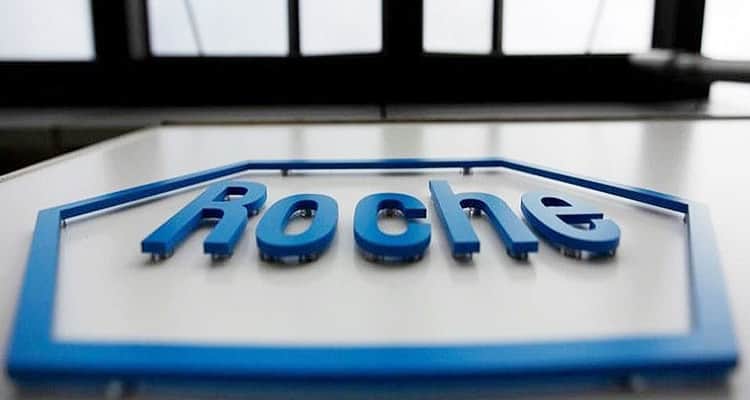Roche Pharma achieves several milestones in Q3
The company announced several key development milestones in neuroscience, ophthalmology, oncology and COVID-19, along with some regulatory approvals in the third quarter
Roche achieved a number of regulatory milestones in the third quarter, the company informed today via a statement.
The statement said that the US Food and Drug Administration (FDA) granted approval to Tecentriq this month after it was granted a priority review in August. It is now the first and only cancer immunotherapy available for adjuvant treatment of certain people with early-stage non-small cell lung cancer (NSCLC).
Further, in September, the company was granted another priority review by the FDA for its eye medicine Faricimab for the treatment of neovascular or “wet” age-related macular degeneration (nAMD) and diabetic macular edema (DME). If approved, it would be the first in a new class of eye medicines targetting two key pathways that drive retinal disorders, with the potential to offer durable vision outcomes with fewer eye injections than the current standard of care. Along with that, the European Medicines Agency (EMA) recommended the approval of RET inhibitor Gavreto as monotherapy for patients with advanced RET-fusion-positive NSCLC. RET alterations are key disease drivers in many cancer types, including NSCLC and multiple types of thyroid cancer.
In addition to it, the EMA approved a new, shorter 90-minute Gazyva/Gazyvaro infusion, administered in combination with chemotherapy in patients with previously treated or untreated advanced follicular lymphoma this month only, the statement said.
It also said that the FDA granted two additional Breakthrough Therapy Designations (BTDs) for Venclexta/Venclyxto combination therapy for the treatment of adult patients with myelodysplastic syndromes, a rare form of blood cancer.
Furthermore, in the third quarter, Roche also announced several key development milestones in neuroscience, ophthalmology, oncology and COVID-19.
The statement said that neuroscience is a major research focus at Roche. The company is investigating more than a dozen medicines for neurological disorders, including rare neuromuscular disorders, such as spinal muscular atrophy (SMA) and Duchenne muscular dystrophy (DMD).
SMA is the leading genetic cause of death in babies. In September, new data showed that pre-symptomatic babies with SMA treated with Evrysdi maintained the ability to swallow. Evrysdi thus demonstrated consistent clinically meaningful efficacy in adults, children and babies two months and older. DMD is a rare progressive neuro-muscular disease caused by mutations in the DMD gene. Longevity is limited due to cardiac and/or respiratory failure. In September, new data supported the efficacy, safety and durability of gene therapy SRP-9001 in the treatment of DMD, added the statement.
The statement further mentioned that earlier this month, Roche presented new data for Ocrevus (multiple sclerosis; MS) and Enspryng (neuromyelitis optica spectrum disorder; NMOSD). The longer-term efficacy and safety data for both medicines reinforce the impact of Ocrevus in significantly slowing disease progression in MS and of Enspryng in significantly reducing relapses in NMOSD.
Among the highlights in oncology were the highly promising phase-III study results for first-line Polivy combination therapy in an aggressive form of blood cancer (previously untreated diffuse large B-cell lymphoma, DLBCL). This Polivy regimen is the first therapy in two decades to improve progression-free survival in DLBCL compared to the standard of care. Since 40 per cent of people with DLBCL relapse after initial therapy, achieving meaningful treatment effects in the front-line setting has the potential to be transformative.
Other highlights were the new encouraging phase-II data from an interim analysis on Giredestrant in hormone receptor (HR)-positive and HER2-negative early breast cancer. Giredestrant is a next-generation selective oestrogen receptor degrader (SERD). Since it is taken orally, it has the potential to transform the treatment experience for patients by offering greater convenience and a less painful option compared to therapies administered via intramuscular injection, the statement said.
In cancer of unknown origin (CUPs), doctors are unable to identify the location of the primary tumour and can only find metastases, which makes treatment difficult. In September, Roche published initial results of a phase-II study (CUPISCO), which emphasised on the importance of genomic profiling for patients with CUP and how it may help to inform a more personalised treatment plan in the future, according to the statement.
Last month, Roche published positive data from a phase II/III study on Ronapreve in patients hospitalised with COVID-19. The trial showed that the anti-body combination (co-developed with Regeneron) significantly reduced viral load within seven days of treatment in patients who had not mounted a natural antibody response of their own. These data add to previous findings that support the potential of Ronapreve in hospitalised patients, which may also help to ease pressure on healthcare systems.
In addition, the World Health Organization (WHO) recently issued guidance regarding the use of Ronapreve for the treatment of certain patients with COVID-19. So far, Ronapreve has been made available to patients in more than 40 countries via bilateral purchase agreements across many geographies and economies, including lower-middle-income countries, as per the statement.
The study on AT-527 did not meet its primary endpoint. The final data from the full phase-II study will be submitted to a peer-reviewed publication. Roche and its partner Atea will continue to analyse available and incoming data from the trial to generate evidence and provide a more complete picture of AT-527 in COVID-19, the statement further notified.


